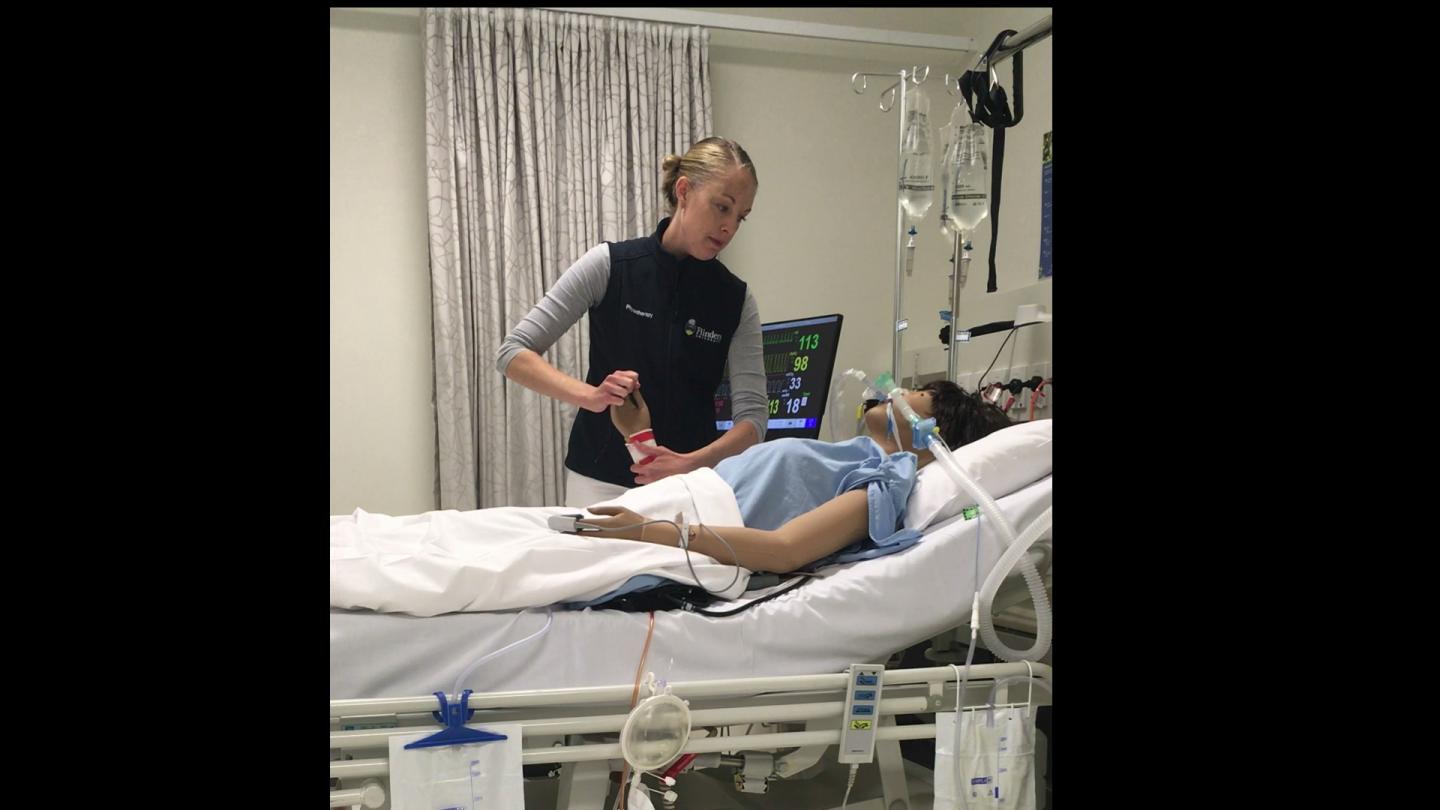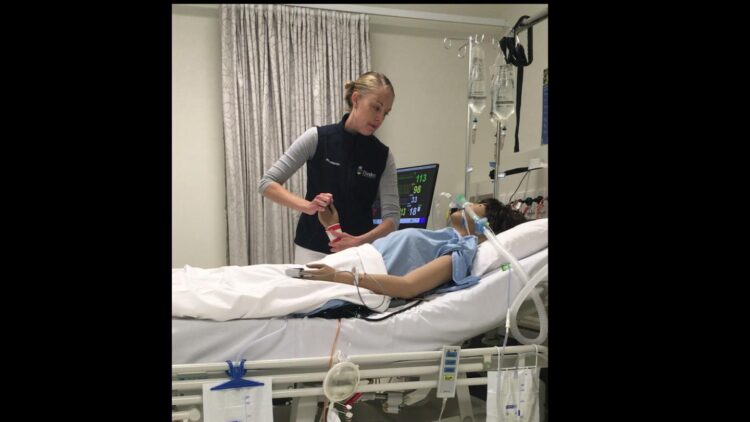New guidelines to help patients ‘get moving’

Credit: Flinders University
New physiotherapy guidelines are targeting COVID-19 patient recovery for respiratory management, exercise and mobilisation in acute hospital wards and Intensive Care Units.
The new guidelines published in Australian Journal of Physiotherapy aim to prevent complications of the respiratory system and muscle deconditioning, speed up recovery from mechanical ventilation, and improve long-term physical function and recovery.
It also provides physiotherapists with workforce planning and preparation in a pandemic, PPE (personal protective equipment) requirements and how to safely deliver treatments, how to determine who physiotherapists should treat, and how to protect health care workers and resources.
Physiotherapists are an essential professional group who will be required to limit the severity of ICU-acquired weakness in patients and provide longer term rehabilitation and interventions to survivors of COVID-19 to allow them to function upon returning home and regain their life roles, the researchers say.
The clinical practice guidelines were developed by a group of international experts in cardiorespiratory physiotherapy. The authors have extensive clinical experience in ICUs and on the wards, as well as academic physiotherapists who have experience in a range of research methods including clinical practice guidelines.
The physiotherapy guidelines were prepared with reference to existing medical guidelines, relevant literature and a process to determine consensus agreement within the expert group.
The guide has been endorsed by professional associations across the world, is being translated into several languages and is already having a large international impact on physiotherapy practice and workforce issues in response to the COVID-19 pandemic.
Flinders University Caring Futures Institute researcher Dr Claire Baldwin, a co-author of the clinical practice guide, says there is an urgent need globally for clinical guidance for acute care physiotherapists.
“For physiotherapists, these guidelines are just as much about who not to treat (where treatment benefits may be minimal, but health care worker risks are high), just as it is about where there is an indication for physiotherapy,” she says.
“Patients with pre-existing health conditions who contract COVID-19 and those who require treatment in an ICU will especially need our help.”
Dr Baldwin says key points of difference in these guidelines compared to medical guidelines relate to the specific respiratory care that physiotherapists can provide.
“The common presentation of COVID-19 does not appear to be characterised by a cough with phlegm. However, some people may develop phlegm that they are unable to clear from their lungs, or, have added challenges because they have difficulty with coughing up phlegm even under normal circumstances. This is where respiratory physiotherapy treatments may be needed.”
“Because cough generates aerosols, it is important that respiratory physiotherapy techniques are recognised as an aerosol generating exposure and physiotherapists can be protected with the correct PPE,” she says.
“Physiotherapy input to the prevention and treatment of ICU acquired weakness is vitally important, but COVID-19 brings unique challenges and some adaptations to the way that care is delivered.”
Dr Baldwin drew on experience in ICU physiotherapy, mechanical ventilation, respiratory management, physical function, outcome measurement and long-term outcomes after critical illness, all of which are relevant to hospitalised COVID-19 cases.
Her research is usually centred on helping hospital patients with illness including respiratory issues to “get moving”
###
‘Physiotherapy management for COVID-19 in the acute hospital setting: clinical practice recommendations’ has been published in the Australian Journal of Physiotherapy (Elsevier).
Media Contact
Claire Baldwin
[email protected]
Related Journal Article
http://dx.





